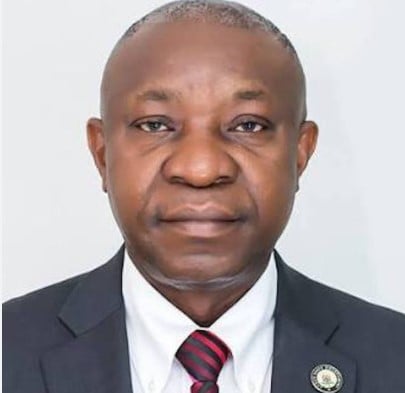The Executive Chairman of the Ogun State Internal Revenue Service (OGIRS), Olugbenga Olaleye, has directed all directors, zonal controllers, tax office managers, and heads of units to ensure strict compliance with data integrity and cybersecurity policies as part of the state’s ongoing tax reform preparations.
Olaleye gave the directive during the agency’s 2025 Q1–Q3 Performance Review held at Oba’s Complex, Oke-Mosan, Abeokuta, according to a statement released on Monday by the OGIRS Information and Public Relations Officer, Bola Sobola.
He explained that the era of using traditional enforcement methods such as roadblocks and physical confrontations with taxpayers was over. Instead, he called on tax officers to embrace modern, technology-driven systems that enhance efficiency, transparency, and public trust.
“The new tax laws will take effect from January 2026, and we must be fully prepared. Data integrity and cybersecurity are critical to the success of these reforms,” Olaleye stated.
He stressed that adopting digital systems without strong data protection measures could expose the agency to cyber threats, financial fraud, and reputational damage. He also called for continuous collaboration, innovation, and regular brainstorming sessions to boost performance and improve service delivery.
Olaleye further announced that the Joint Tax Board (JTB) has been renamed the Joint Revenue Board (JRB) following the assent of the JRB Act 2025 by President Bola Ahmed Tinubu. With the new law, the JRB now has an expanded legal mandate to coordinate and regulate tax administration across all levels of government in Nigeria.
During the review session, the OGIRS Coordinating Director, Taiwo Ogundimu, commended participants for their dedication and hard work throughout the year. He described the session as a platform to enlighten staff about the new policy direction and urged them to intensify their efforts to meet the state’s 2025 revenue targets.
Ogundimu noted that the reforms were designed to lay a solid foundation for Ogun State’s 2026 fiscal year, which would focus on automation, tax harmonisation, and stronger collaboration between state and local tax authorities.
A Senior Manager at Deloitte, Christopher Olayemi, made a presentation on the objectives of the new tax reforms. He explained that the reforms aim to simplify tax laws and make them easier for citizens and businesses to understand.
Olayemi advised tax administrators to prioritise digital transformation, improve database management, and ensure regular staff training to keep pace with evolving financial technologies. He also emphasised the importance of public sensitisation campaigns to educate taxpayers on the benefits of compliance.
In a health and wellness session, a public health expert, Dr. Stella Olaleye, encouraged OGIRS staff to adopt healthy lifestyles to maintain productivity. She advised participants to go for regular medical check-ups, exercise frequently, get enough sleep, and manage stress effectively.
Also speaking, the Director of Field Operations, Oluwaseun Olajube, noted that about 85 per cent of taxpayers in Ogun State belong to the informal sector. He called for simplified communication and engagement methods tailored to market traders, artisans, and other informal workers, adding that clear and relatable messaging would enhance compliance and improve revenue mobilisation.
Olaleye reaffirmed OGIRS’ commitment to transparency, innovation, and digital compliance in line with the Ogun State government’s drive for a modern and efficient tax system. He said the agency would continue to work with professional firms, technology experts, and development partners to strengthen cybersecurity and protect taxpayer data as part of its reform roadmap.
